Puritanism is a religious movement formed in the 16th-17th centuries. Puritanism began as an attempt to purify the Church of England, to rid it of any Roman Catholic doctrine that was not rooted in the Bible. Some Puritan groups came to America and settled in the Northern English Colonies between the 1620s and 1630s. Here are six of the most important Puritan figures you should know.
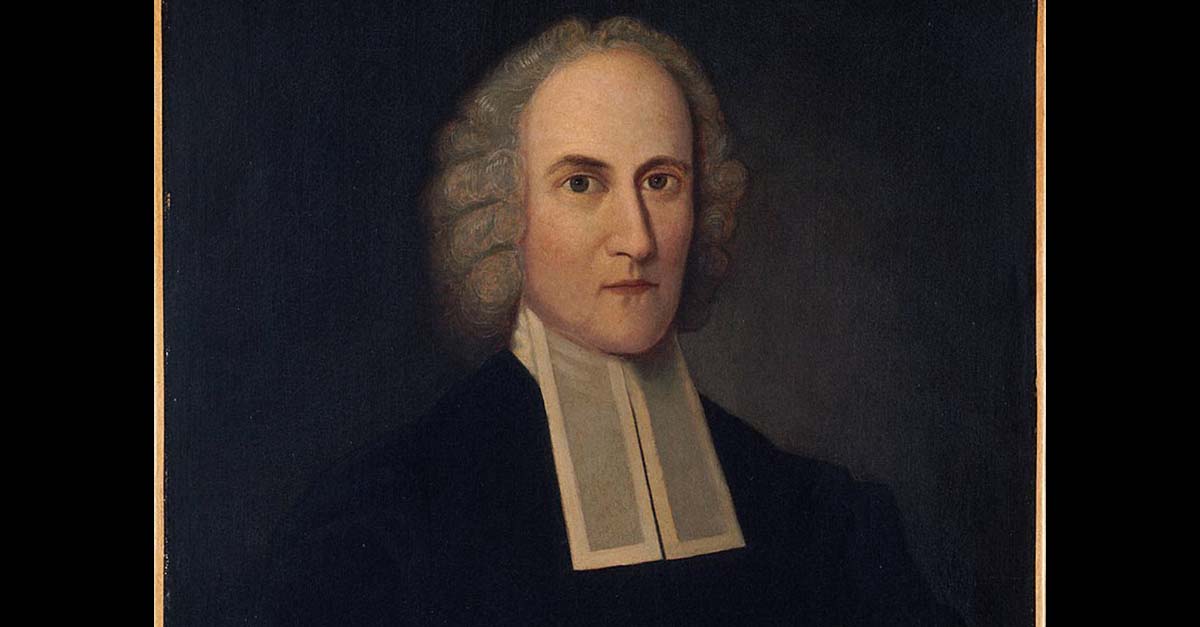
Jonathan Edwards
Jonathan Edwards is a pivotal church figure known for his involvement in the Great Awakening. The Great Awakening was a revival that swept through the English colonies in the 1730s-1740s. Before this time, religion had simmered, and people were not as enthusiastic about it. Ministers traveled from town to town, preaching the gospel and encouraging people to get saved. This promoted more enthusiasm for Christianity. Denominational differences had also divided many colonies.
Jonathan Edwards was a Yale graduate who became the sole pastor of an Anglican church in Northampton, Massachusetts Anglican church. He sat under his grandfather’s leadership for two years before becoming its pastor. He married Sarah Pierrepoint when he was 24, and they had eleven children. As a pastor, Edwards preached that humans were sinners, God was an angry judge, and people needed to ask for forgiveness. In 1734, he preached justification by faith, which sparked a revival in his parish. Conversion to Christianity started small but then grew to 30 converts a week.
Edwards was remembered for his passion and energy, which can be seen in his powerful 1741 sermon, “Sinners in the Hands of an Angry God.” He preached locally, unlike traveling ministers or evangelists, and is known for bringing many to Christ. He penned several books, including Narratives of Surprising Conversions.
Edwards did draw controversy. He went against his grandfather’s policies and believed that only those who had converted to Christ could take communion. His congregation separated from him, and he was ousted in 1750. Afterward, Edwards was a missionary pastor to Native Americans in Stockbridge, Massachusetts, for a few years. He was known for rising as early as 4 a.m. and studying several hours daily. In 1758, he was called to be president of the College of New Jersey (now Princeton). Shortly after his arrival, he died at 55 years old from complications from a smallpox vaccination.
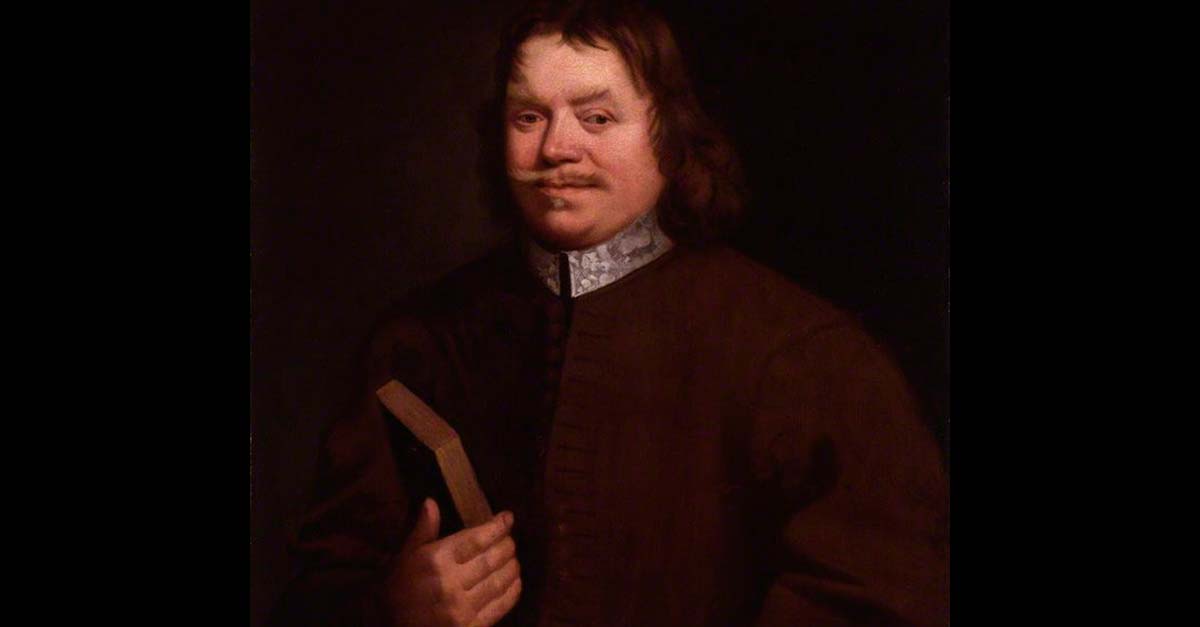
John Bunyan
John Bunyan is best known as the author of The Pilgrim’s Progress. Born in Bedfordshire, England, Bunyan was a poor traveling tinker before becoming a famous writer and minister. His wife was equally poor, bringing only two Puritan books as her dowry. Bunyan documents his conversion to Christ in Grace Abounding to the Chief of Sinners.
He became a Christian and was a friend of John Gifford, a minister at a Separatist Church in Bedford, England. Bunyan joined the church and became a lay minister. After four years, Bunyan was drawing many to Christ. His newfound calling clashed with the Restoration of Charles II, which enforced strict adherence to the Church of England. Bunyan would not conform and was sent to prison for 12 years.
Bunyan was concerned about his family during his imprisonment (1660-1672). His first wife had died some years earlier. He had a second wife and four children. He could have obtained freedom if he had promised not to preach. Bunyan would not relent the call and even preached to other prisoners. He supported his family by making shoelaces and wrote nine books.
One of the books he wrote in prison was The Pilgrim’s Progress, considered his greatest work. The book made Bunyan famous—it was the number one seller after the Bible at the time. After Bunyan’s imprisonment, he continued to preach, even doing so in London. He died at 59 years old after traveling through heavy rain to minister to a father and son. The weather made Bunyan ill, and he didn’t recover.
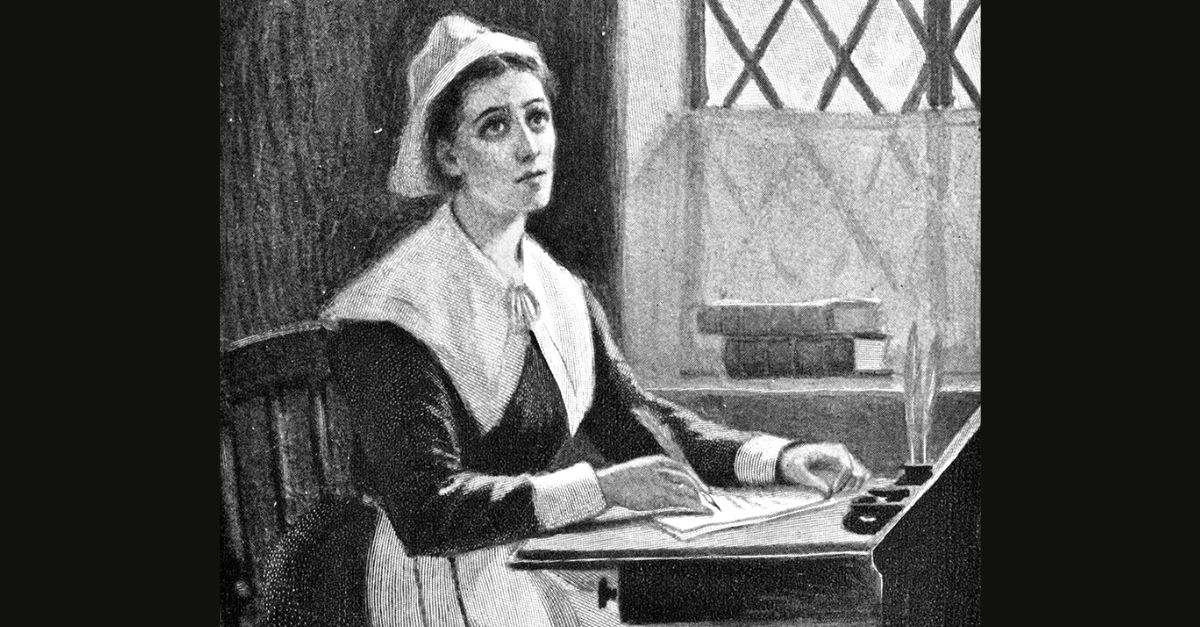
Anne Bradstreet
Some refer to Anne Dudley Bradstreet as America’s first poet. She was just 16 when she married Simon Bradstreet. A few years later, her family (including her parents) joined other Puritans to sail to America, settling in the Massachusetts Colony.
While rearing eight children, Bradstreet wrote poems, worked as a hostess, and was involved in other domestic activities. She was one of the first colonists to write English verse. Many of her poems were written for her family and portrayed spiritual growth and loyalty to Puritanism. Other poems were inspired by noteworthy events, such as childbirth or family deaths.
Her family frequently moved in the Massachusetts Colony. Eventually, Andover became Bradstreet’s permanent home. Without Bradstreet’s knowledge, her brother-in-law John Woodbridge had some of her poems published: The Tenth Muse Lately Sprung Up in America appeared in 1650. The rest of her poems were published after her death in 1672.
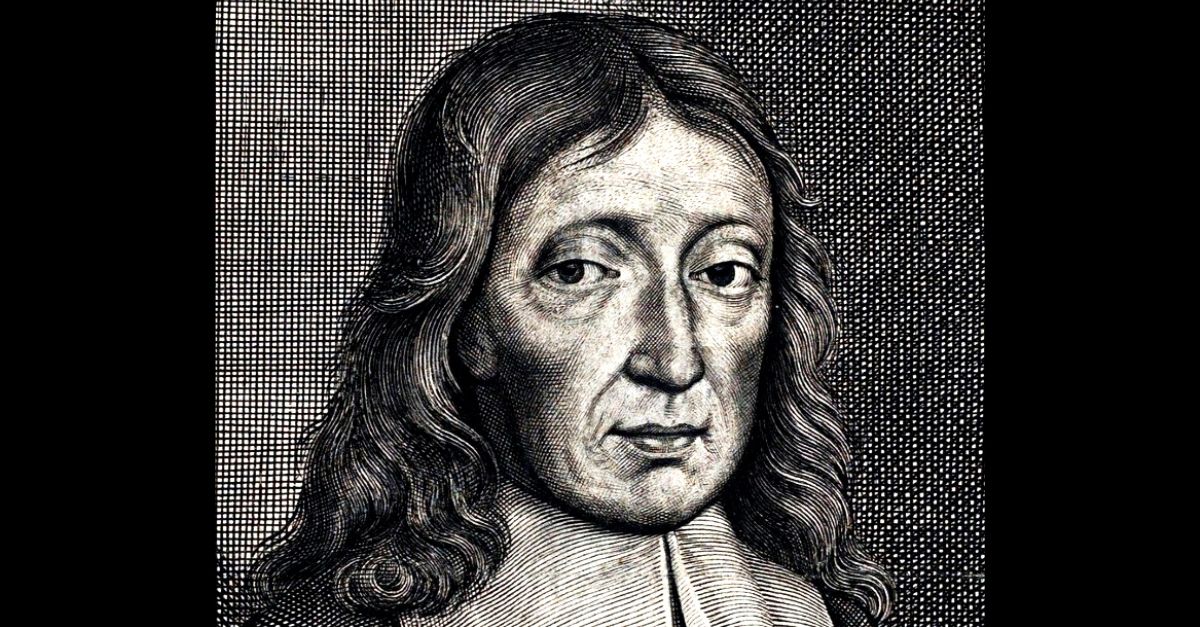
John Milton
Another Puritan known for his poetry is John Milton. Born in London in 1608, Milton is best known for Paradise Lost, regarded as the greatest epic poem in English. Milton was very much involved in politics, petitioning for the elimination of the Church of England and the execution of Charles I.
In 1642, Milton married 17-year-old Mary Powell. They had three daughters and a son. Mary died in 1952 following the birth of their fourth child. His second wife, Katherine Woodcock, died in 1657, a few months after the birth of their daughter. He married Elizabeth Minshull in 1663.
During the English Civil War, Milton remained a vigilant Puritan. He wrote a series of pamphlets on the morality of divorce, freedom of the press, and anti-monarchial issues. Milton also served as secretary of foreign languages for Oliver Cromwell’s government and composed official statements defending the Commonwealth. He soon began to lose eyesight and was completely blind by 1651. He was able to continue his duties with various aides.
In 1660 when Charles II was restored to the throne, Milton was arrested as a defender of the Commonwealth. He was fined and shortly released. Afterward, he lived in seclusion in the countryside and later penned Paradise Lost, a story of Adam and Eve’s fall from grace. The poem is extensive, with about 11,000 lines across twelve books. The main characters are God, Lucifer, Adam, and Eve. The themes include love, war, heroism, the battle between good and evil, and Satan’s expulsion from Heaven. Milton sold this epic in 1667 to publisher Samuel Simmons. He wrote its sequels, Paradise Regained and Samson Agonistes, in 1671. He died in 1674.
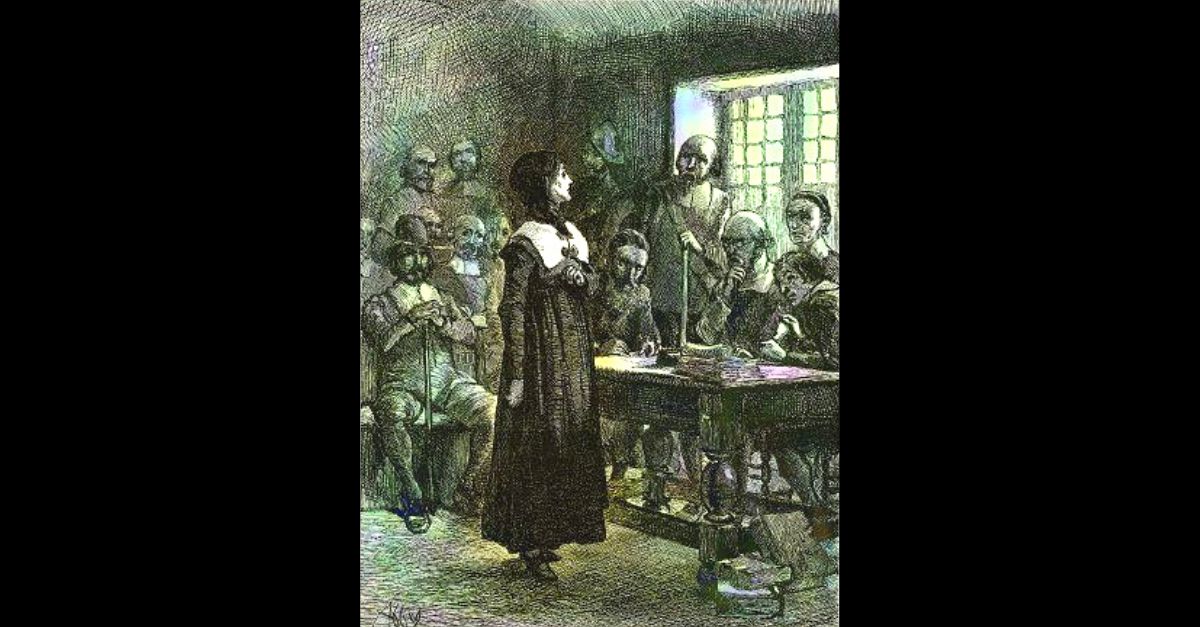
Anne Hutchinson
Anne Hutchinson was a popular preacher and religious leader who challenged the religious doctrine of her time. The first record of her is her baptism on July 20, 1591. She was the daughter of a silenced clergyman. In 1612, Anne Marbury married William Hutchinson. The couple moved to the Massachusetts Bay Colony in 1634.
Pretty soon, Hutchinson was organizing weekly women’s meetings to discuss theological topics, often discussing recent sermons. She soon attracted ministers and magistrates to her meetings. The Massachusetts Bay Colony’s elders didn’t approve of Hutchinson’s teaching. She taught that Christians should use their intuition to reach God rather than be bound by church doctrine. Many believed that she was teaching antinomianism, that God’s grace freed them from keeping the Ten Commandments.
Hutchinson criticized Massachusetts Puritans for a legalistic concept of morality. At first, Bostonians supported her criticism of clergy authority. Reverend John Winthrop opposed her, and after he became governor of Boston, Hutchinson lost much of her support. The General Court tried her for traducing ministers, and she was convicted and sentenced to banishment in 1637. She was held in custody for about a year, refused to recant, and was formally excommunicated.
After Hutchinson’s husband died in 1642, she settled on Long Island Sound. In 1643, warriors from the Siwanoy tribe killed her and her family, including servants. One of her children survived.
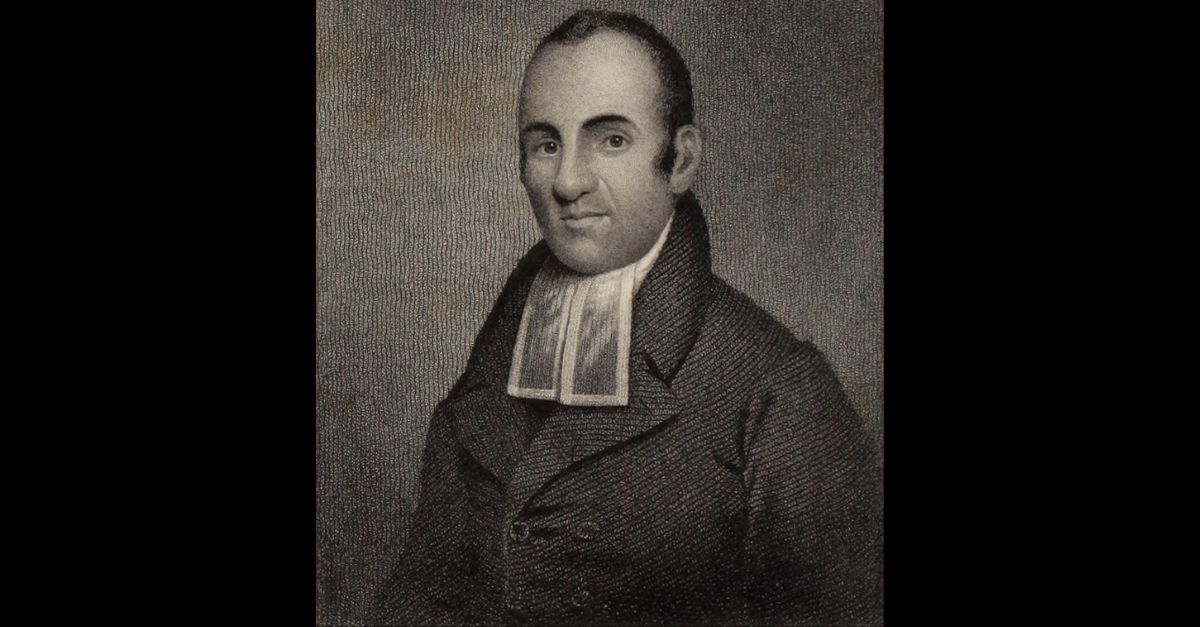
Lemuel Haynes
Lemuel Haynes was the first African American ordained by the Protestant church in America. He was also the first African American to receive an honorary college degree. Born in 1753 in West Hartford, Connecticut, Haynes was abandoned by his African father and white mother. He became an indentured servant to a white family of deacon David Rose in Massachusetts. Blackpast.org describes how Haynes attended a plantation school at night after working each day. According to one story, Haynes read an impressive sermon to the Rose family at a weekend dinner, then admitted he wrote the sermon himself.
After Haynes was freed from his indentured servitude at 21 years old, he built a home in Granville and became a Minuteman. After the Revolutionary War, Haynes turned down an opportunity to study at Dartmouth College, studying with clergy in Connecticut. After becoming a licensed preacher in 1780, Haynes became a minister at the Congregational Church of Middle Granville in 1785. He married a white schoolteacher, Elizabeth Babbitt, and they had 10 children.
Haynes pastored three churches. He pastored a church in Torrington, Connecticut, for two years and then left due to prejudice. In 1788, Haynes started pastoring a church in Rutland, Vermont, and remained there for 30 years. During his time in Vermont, he became known for a strong Calvinist fervor and for opposing slavery and oppression. The church grew from 42 to 350 members. Middlebury College awarded Haynes an honorary Master of Arts degree in 1804, making him the first African-American to receive an honorary degree. Haynes also wrote, publishing the tract “The Nature and Importance of True Republicanism” in 1801. He left Rutland in 1818 and became pastor of a Congregational Church in Manchester, Vermont, for three years. He served his final years at a Congregational Church in Granville, New York. Haynes died in 1833.
Further Reading:
Cotton Mather: Witch Trial Advisor and Puritan Preacher
Puritan Hymnist Phillip Doddridge
5 Myths You Still Might Believe about the Puritans
Photo Credit: Getty Images/Photos.com
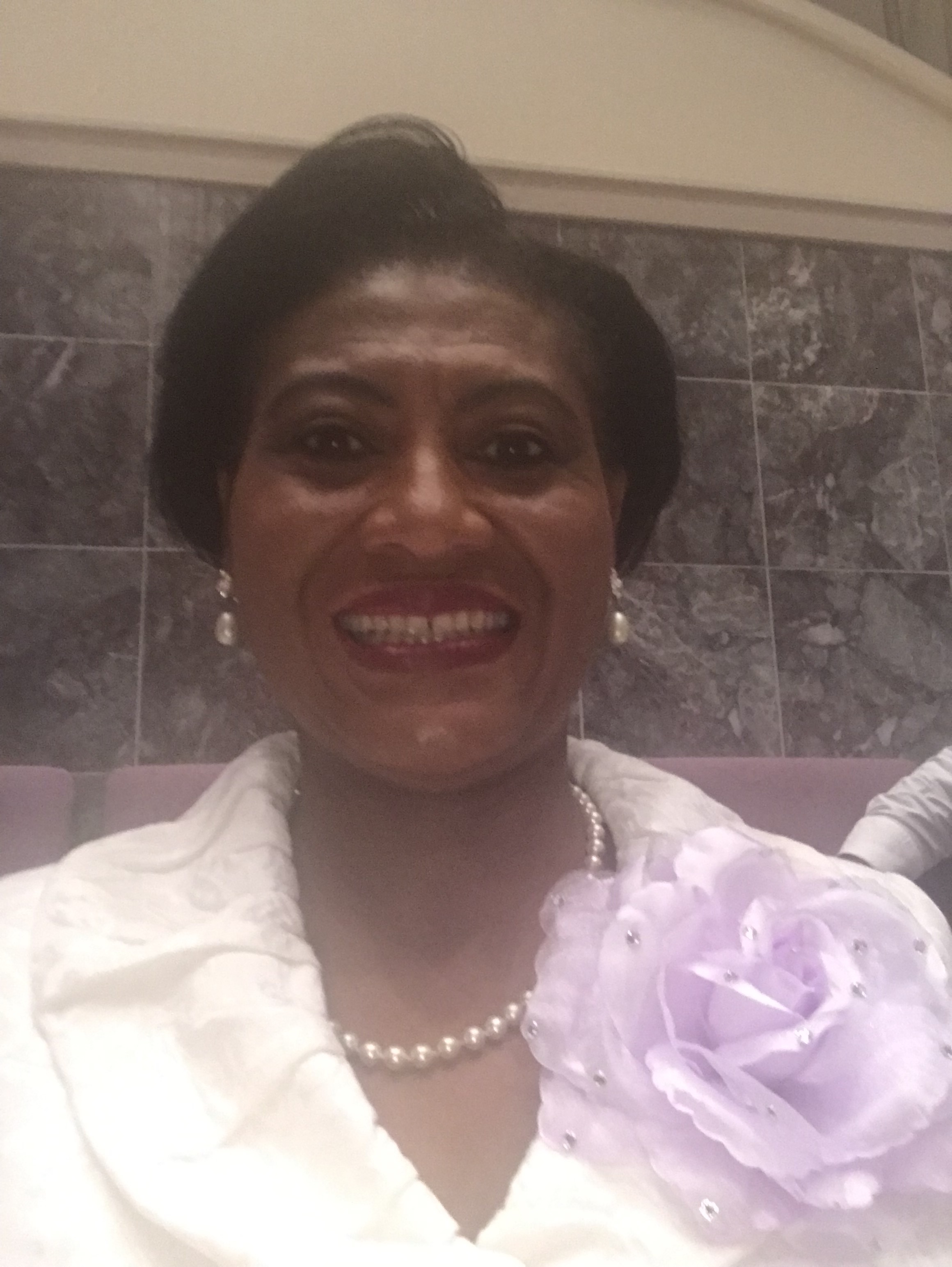
This article is part of our People of Christianity catalog that features the stories, meaning, and significance of well-known people from the Bible and history. Here are some of the most popular articles for knowing important figures in Christianity:
How Did the Apostle Paul Die?
Who are the Nicolaitans in Revelation?
Who Was Deborah in the Bible?
Who Was Moses in the Bible?
King Solomon's Story in the Bible
Who Was Lot's Wife in the Bible?
Who Was Jezebel in the Bible?
Who Was the Prodigal Son?
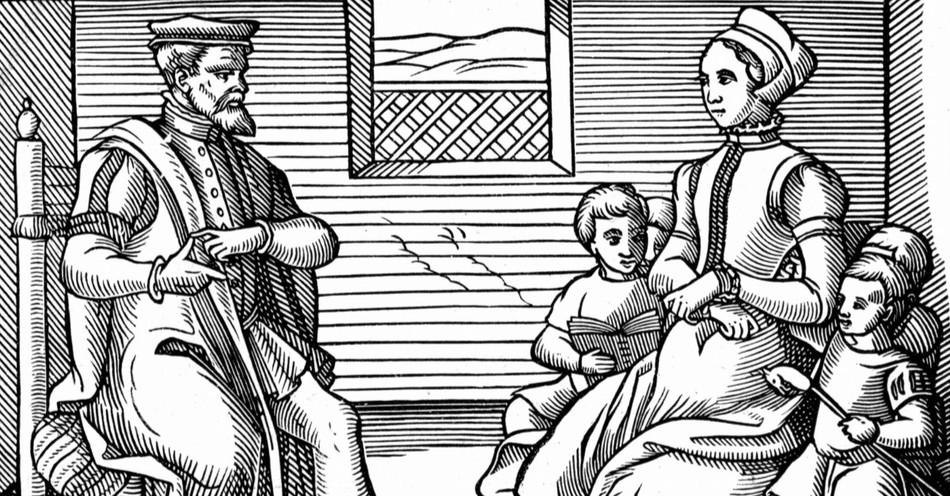



.jpg)